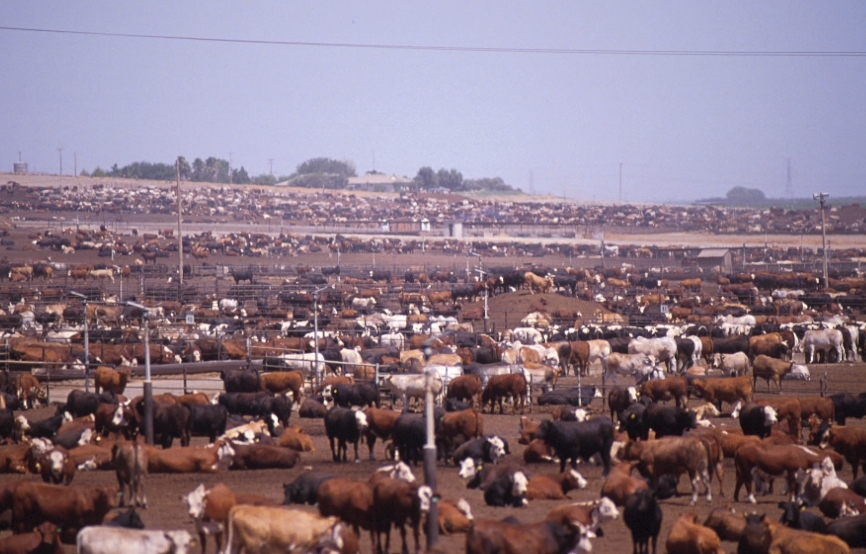Inhumane Practices of Commercial Livestock Farms
National CSA Directory January 20, 2019


Inhumane Practices of Commercial Livestock Farms
The world has become a brutal place to live. From people using uncouth means to make money to the rising cases of fraud and crime, hardly a day passes without sadistic news hitting our screens. In some instances, we never hear about it.
The saddest part is that farms near me and breeders have also joined the bandwagon. In essences, they have taken animal cruelty to a whole new level just to make a quick buck at the expense of animal welfare. This is particularly true for commercial livestock farms, popularly known as factory farms, who are involved in appalling practices that may probably change your mind about buying animal products. This is not the case with the product purchased thru livestock classified ads.
Here are some of the inhumane practices used by commercial livestock farms:
Slaughtering animals at a young age Slaughtering of animals at a tender age is not only unethical but also cruel. Commercial livestock farmers often do so once an animal is deemed to have become less productive or has reached the desired size.
Injecting animals with antibiotics and hormones Using antibiotics and growth hormones on animals is 100% legal, as it helps fight infections and improve the quality of the breed. However, commercial livestock farmers often overdo it, in order to make the animals grow more rapidly. This not only affects the health of the animal but also has a bearing on the health of the consumer.
Cutting off tails Tails are normally docked off shortly after birth using sharp blades (without any painkillers or anesthesia ) to prevent them from infections or being bitten off in overcrowded pens
Force-feeding, In this case, tubes are forced down the throats of geese and ducks in order to feed them huge volumes of corn against their will.
Teeth clipping Piglets suffer the most from teeth clipping. In this case, the farmer rips the teeth of piglets forcefully without the use of painkiller to prevent them from harming each other.
Extreme confinement Like humans, animals need freedom and some time out in the sun. However, commercial livestock farmers often lock them up in cramped cages where they cannot stretch or even turn around.
Cannibalism Some commercial farmers use the carcasses of dead animals to feed other animals as a way of cutting down on production costs.
Debeaking, Even though debeaking is legal, some farmers practice it in an inhumane way, by using hot blades and
cutting the beak beyond the required measurement. This makes it difficult for the bird to feed.
Thumping of piglets Animals that are not growing fast enough even after hormonal injections, are usually slammed headfirst onto steel or concrete floors.
Branding, Branding is a way of identifying animals, especially on a large farm. However, the process is deemed inhumane as it involves the use of hot iron, without painkillers. Additionally, the branded area may become infected, leading to further complications.
The cruel practices applied on livestock can affect human health. For instance, consuming animal products containing antibiotics may pass resistant bacteria to humans, leading to difficulty in treating infections and increased severity of various ailments. In essence, the body will retain strains of bacteria that are resistant to antibiotics, subsequently increasing the risk of infections.
Astonishingly, the use of growth hormones in animals has a devastating effect on human health. Consuming animals grown using artificial hormones stimulate cell division, subsequently increasing the risk of various types of cancers, including breast and colon cancer. Foods with artificial hormones also increase the risk of several other diseases such as diabetes. Even drinking milk from these animals during pregnancy may affect the baby later in life!
Based on the current developments at most commercial livestock farms, consuming animal products from small scale farmers seems to be the ideal solution to avoid the negative impact of intensive farming. Apparently, small scale farmers are highly unlikely to be after making a quick buck, and they tend to take care of their animals better. The fact that they handle a small flock means they are able to develop a bond with them. In fact, it is naturally difficult for a small scale farmer to slaughter an animal they have developed a bond with. This increases the likelihood of the farmer treating the animal better.
All these may sound hypothetical, but it’s the truth. Based on various studies, animals raised on small scale farms are well-fed, free to roam and treated with less or no chemicals.